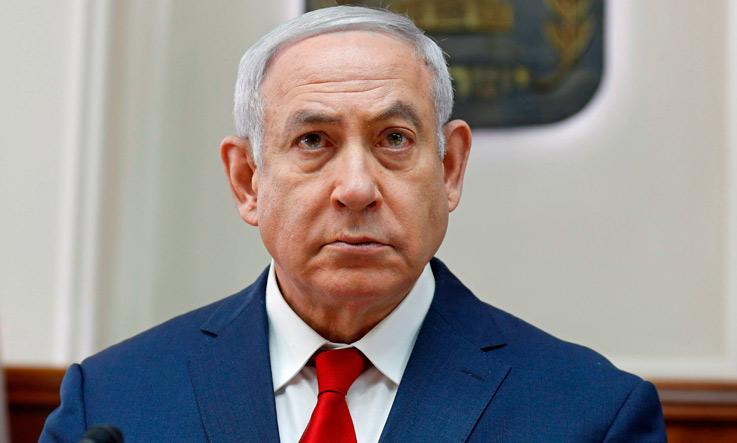
Israeli PM speaks of "nuclear threat" by Iran at UN, later clarifies statement
text_fieldsIsraeli Prime Minister Benjamin Netanyahu, Image credit: PTI
Israeli Prime Minister Benjamin Netanyahu delivered a speech at the United Nations in which he initially warned of a "nuclear threat" posed by Iran but later clarified his statement as a misreading of his prepared text.
During his speech, Netanyahu expressed his concerns about Iran's actions and emphasised that Israel would do everything in its power to prevent Iran from acquiring nuclear weapons. He stated, "Above all, Iran must face a credible nuclear threat. As long as I'm prime minister of Israel, I will do everything in my power to prevent Iran from getting nuclear weapons."
However, Netanyahu's office swiftly corrected the statement, noting that his prepared text had mentioned a "credible military threat" rather than a "credible nuclear threat." The prime minister's office clarified, "It was misread as a credible nuclear threat. The prime minister stands by the original text of the speech," reported AFP.
Israel's nuclear capabilities have long been known, with an estimated stockpile of around 90 nuclear warheads as of January, according to the Stockholm International Peace Research Institute.
In contrast, Iran has denied pursuing nuclear weapons but has breached certain limits on uranium enrichment set by a 2015 deal following the United States' withdrawal and reimposition of sanctions under former President Donald Trump.
Richard Gowan, an expert on the United Nations from the International Crisis Group, commented that leaders occasionally misread speeches, referencing a similar incident involving President Joe Biden mistakenly referring to "United States" instead of "United Nations" during his General Assembly speech.
Netanyahu also addressed the unity between Israel and several Arab states, emphasising their shared concerns regarding Iran's leadership. Israel established relations with the United Arab Emirates, Bahrain, and Morocco in 2020, marking significant diplomatic breakthroughs.
The Israeli Prime Minister expressed optimism about the possibility of achieving a "historic peace" between Israel and Saudi Arabia, emphasising the potential positive impact on the broader Arab-Israeli conflict. He firmly rejected Palestinian leader Mahmud Abbas's assertion that a Palestinian state was essential for peace in the Middle East, stating that the Palestinians should not have a veto over new peace agreements with Arab nations.
The Biden administration has been facilitating talks between Israel and Saudi Arabia, with both sides reportedly moving closer to improved relations. Netanyahu praised President Biden's diplomatic efforts despite their policy differences.
In his speech, Netanyahu emphasised the importance of broadening peace agreements in the region, ultimately working towards greater stability in the Middle East.

















